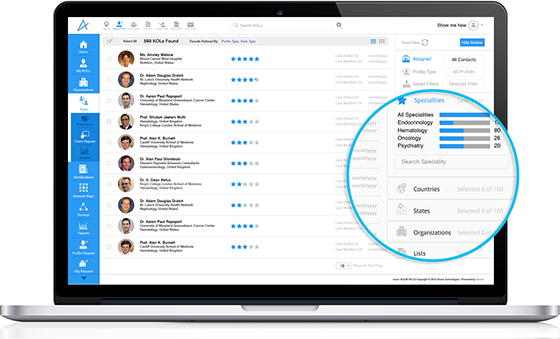14-11-2025
Enhancing HCP–Pharma Synergy in Cardiology: Strategies for Meaningful Collaboration

The success of any cardiology product depends on its real-world effectiveness within the patient population. Clinical adoption plays a key role in achieving this success and that, in turn, relies on the strength of HCP-pharma collaborations. When healthcare professionals and pharmaceutical teams work together seamlessly, they not only advance cardiovascular science but also accelerate the delivery of life-saving therapies to those who need them most.
However, even with the best intentions, many HCP-pharma collaborations fall short of their potential. Understanding what causes these breakdowns is essential to building stronger, more productive partnerships in cardiology. In this article, we uncover common reasons why HCP-pharma collaborations fail and how to turn each into an opportunity for success.
Why HCP-Pharma Engagements Falter and How to Make them Stronger
1. Lack of Clear Objectives
The Challenge: Engagements often fall short when neither side establishes specific scientific or therapeutic goals. For instance, collaborations around lipid-lowering therapies or heart failure management may remain superficial without alignment on measurable outcomes such as adherence rates or adverse event monitoring.
The Solution: Define a shared vision early on. Whether the focus is on improving real-world adherence to anticoagulants or optimizing outcomes in post-MI patients, every collaboration whether scientific, educational, or strategic should have clearly measurable objectives. These goals should connect directly to patient outcomes and organizational missions, creating a unified sense of purpose.
2. Communication Gaps
The Challenge: In cardiology, where treatment guidelines evolve rapidly, delayed or inconsistent communication can quickly erode trust. For example, when updates or new evidence for specific cardiovascular drugs are not timely shared, valuable insights are lost.
The Solution: Establish consistent communication through medical science liaisons (MSLs) and secure digital platforms. MSLs play a vital role in bridging real-world practice with clinical research facilitating transparent, science-driven dialogue. Encourage two-way communication that enables HCPs to share their clinical experiences and feedback freely.
3. Perceived Commercial Bias
The Challenge: When HCPs sense that interactions are driven by commercial motives rather than scientific exchange, credibility suffers. This perception can weaken relationships and limit collaboration opportunities.
The Solution: Keep conversations evidence-based. Ensure all engagements prioritize clinical value, research needs, and patient benefit over brand messaging. Building trust through integrity fosters long-term collaboration.
4. Poor Insight Management
The Challenge: Pharma teams often collect valuable field insights that remain isolated across departments, preventing cross-functional use. This leads to missed opportunities for innovation or evidence generation.
The Solution: Use integrated insight management tools such as a CRM that allow secure data sharing across medical, commercial, pharmacovigilance, and research functions. Centralized systems ensure that HCP feedback informs strategic decision-making effectively.
5. Limited Feedback Loops
The Challenge: When HCPs provide input without seeing outcomes or follow-up, they may feel their contributions aren’t valued, leading to disengagement.
The Solution: Close the loop. Share outcomes, research updates, or next steps with HCPs who contribute insights. Demonstrating that their feedback drives change strengthens the partnership.
6. Compliance Concerns
The Challenge: Fear of regulatory breaches or noncompliance can make both sides overly cautious, limiting engagement opportunities.
The Solution: Establish clear internal guidelines and training to ensure compliant, ethical collaboration. Transparency and adherence to local and global standards protect both partners and build credibility.
To build stronger HCP-pharma partnerships in cardiology, you need to engage with HCPs that meet your objectives. You will need their comprehensive details of their profiles, industry engagements, and a system to record and manage further interactions. konectar delivers precisely this. fulfills this.
Designed to simplify scientific engagement, konectar helps medical and commercial teams identify key experts, track scientific activity, and transform insights into strategy. With konectar, teams can identify the right healthcare professionals, manage interactions effectively with the built-in CRM, and ensure that every interaction contributes to meaningful outcomes. For more details, request a demo today.





